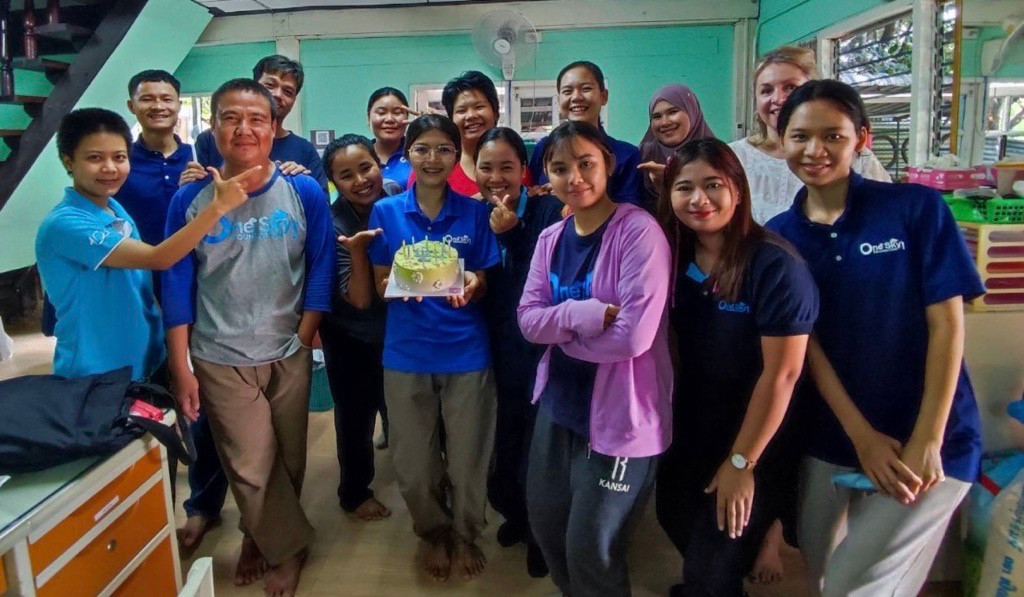By Andy Lillicrap, Founder & Advisor to One Sky Foundation

Over 3 million children live in kinship care in Thailand, accounting for 25% of all children in the country. However, the percentage of children in kinship care varies in different regions, with the northeast of Thailand reaching 33%.
The northeast region has a long tradition of parents migrating for work within Thailand and internationally. In this region, kinship care can include an extended family of grandparents, aunts, and uncles who have lived in the same village for generations. Additionally, the northeast has a comparatively low number of private children’s homes compared to other parts of the country.
In western Thailand, along the Myanmar border, the percentage of children in kinship care drops to around 10%. In contrast, the number of private children’s homes, also known as orphanages, is higher in this region. In the past, we observed that many children living in these homes had previously been in kinship care. The proportion of these children in the homes was significantly higher than that of children still living in kinship care within the community. This overrepresentation highlighted the vulnerability of children in kinship care within the migrant community, underscoring the need for us to provide additional support to these families.
The Motivation Behind Kinship Care Support
Our motivation to have a specific kinship care support project was to keep these children out of children’s homes. In the migrant community, when a parent has died or disappeared, the likelihood of a child in kinship care going into a children’s home becomes very high. If both parents have died or disappeared, then it is almost guaranteed. In our research, we could not find any children in kinship care after both parents had died, yet we could find several such children in local children’s homes. This insight helps us develop the best strategy for each kinship family in need of support.
Challenges Facing Kinship Carers
When migrant parents look for work, they often struggle to secure stable, well-paying jobs, and their income can be irregular and below minimum wage. This inconsistency in earnings makes it difficult for them to send regular financial support to kinship carers. Many kinship carers, particularly in migrant communities, are elderly grandparents who may not work at all or only have minimal income. Therefore, the parents’ income – or lack thereof – is often the crucial factor affecting the financial stability of these households. For example, kinship households in Sangkhlaburi have an average monthly income of $20 per person. Additionally, kinship carers in predominantly migrant communities are often lone grandparents living in rented and unstable housing, who may be looking after the children of multiple relatives.
- 37% of the children in kinship care in Thailand are in the poorest quintile of the population.
- Government welfare support for children in kinship care reaches around 5,400 children each year, but this support is only available to Thai families.


One Sky Foundation’s Approach
To address these challenges in Sangkhlaburi, One Sky Foundation provides various supports to kinship families, specifically those in migrant communities along the border. We also enable and support income-generation activities based on the strengths and interests of individual families. This can range from raising pigs, to opening a food stand, or running a small shop.
We also provide:
- Opportunities for peer-to-peer sharing and support for kinship carers.
- Family strengthening days, such as a family day out away from normal stress and pressure (e.g., a boat trip and picnic). During the day, the family is supported to talk through some of the challenges they are facing and to make promises to each other about how they will be more supportive of one another.
- Children’s activity days during the school holidays, as kinship families often have minimal resources for their children.
Support for Emergency Child Protection Cases
In emergency child protection cases, a child might be placed temporarily with a foster family while kinship care options are explored. Sometimes, kinship carers initially decline to take on children, but when assured that they will receive support, this often leads to a change of heart. Our team then assesses how well the children know the potential kinship carer and begins the process of integrating the child into their care at an appropriate pace.
Impact on Migrant Communities
Often due to the stress and pressure migrant workers face, we often see children with kinship carers whose parents have separated. Sometimes, parents have had more children with a new partner. It is not unusual for parents in these situations to stop sending money to the kinship carer taking care of their children. In these instances, One Sky sought to find parents to reestablish support for their children in kinship care.
Conclusion: The Critical Role of Kinship Care
Our work at One Sky Foundation is rooted in the belief that children belong with their families, not in institutions. By providing support to kinship carers, we can ensure that more children grow up in safe, loving, stable environments despite the challenges their families face. This approach not only protects the wellbeing of children but also strengthens the community as a whole. Supporting kinship care is a crucial way to keep children connected to their roots and out of institutions.
To learn more about Kinship Care, please visit MJF’s blog Understanding Kinship Care.




